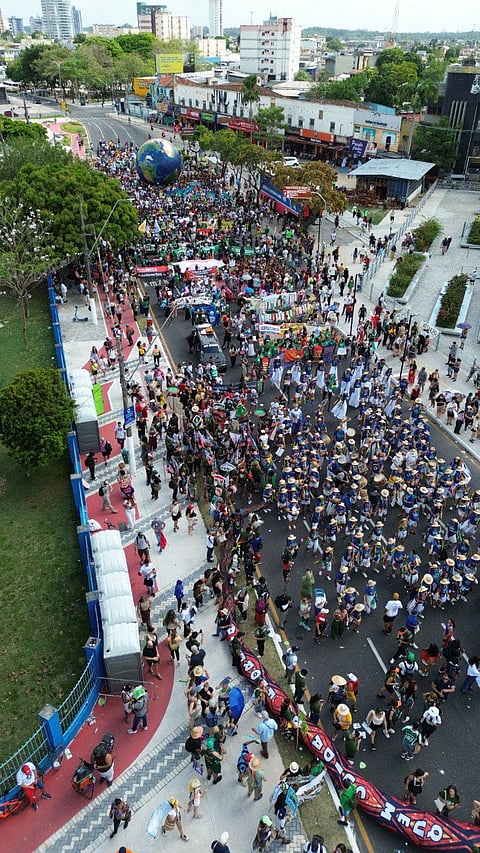

Thousands of climate protesters marched through the streets of Belém, Brazil, on Saturday, converging near the COP30 summit venue to demand urgent action on fossil fuels and indigenous land rights.
The demonstration, featuring giant coffins labeled Oil, Coal, and Gas, along with grim reapers, inflatable animals, and chants of "free the Amazon," marked the largest protest day at the halfway point of the United Nations climate talks.
It was the first such large-scale protest allowed outside the venue since 2021, following summits in countries restricting public demonstrations.
Indigenous groups carried signs reading "the answer is us" and "demarcation now," advocating for legal ownership of their territories to protect Amazon biodiversity.
Brazilian youth, rural workers, and international activists joined, some wearing black for a fossil fuel "funeral" or red shirts symbolizing environmental defenders' blood.
Organizers used sound systems on trucks to direct the 4-kilometer march, which passed close to the summit site amid tight security with riot shields.
Earlier disruptions included a Tuesday breach causing minor injuries to two guards and limited venue damage.
Smaller solidarity protests occurred worldwide, including in the United Kingdom.
Negotiations at COP30, hosted by President Luiz Inácio Lula da Silva to spotlight the Amazon, have seen slow progress in the first week on phasing out fossil fuels and delivering on past pledges.
The United States sent no delegation, following President Donald Trump's dismissal of climate change as "a con" and withdrawal from the Paris Agreement.
Analysis revealed a record 1,600 fossil fuel lobbyists attending, up 12 percent from last year.
Indigenous voices, despite the summit's "indigenous people's COP" label, feel marginalized on issues like deforestation and resource extraction.
Talks continue into next week, focusing on $300 billion annual climate finance for developing nations, adaptation, and countering disinformation through a new 10-country initiative.